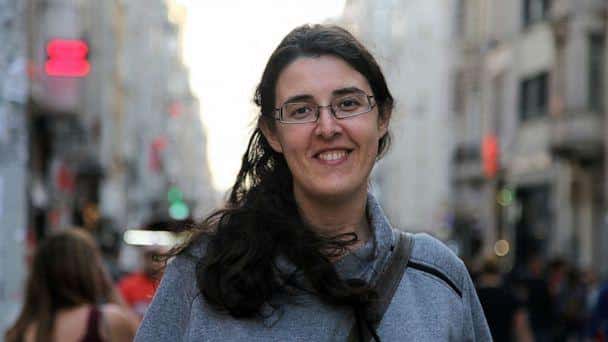BAGHDAD, Iraq — Iraq has launched an investigation into the disappearance of Elizabeth Tsurkov a dual Israeli-Russian professor who has been missing in Iraq since March, according to a government official on Friday.
The remarks by Bassem al-Awadi were the first official Iraqi statements since Israeli Prime Minister Benjamin Netanyahu’s office declared on Wednesday that Elizabeth Tsurkov is still alive “and we hold Iraq responsible for her safety and well-being.”
Tsurkov, according to Netanyahu, is being detained by the Shiite militia Kataeb Hezbollah, also known as the Hezbollah Brigades, a formidable Iran-backed group that the US government designated as a terrorist organization in 2009.
Tsurkov, whose work concentrates on the Middle East, particularly war-torn Syria, is a regional affairs specialist who foreign media have regularly quoted. Tsurkov’s most recent tweet was on March 21.
Tsurkov, a doctoral candidate at Princeton, is a fellow at the Washington-based think tank New Lines Institute.
“There is no official statement yet due to the ongoing official investigations into the disappearance of a foreign journalist,” al-Awadi told The Associated Press via text message. “We are unable to provide specific details at this time.”
Iraq has launched an investigation into the disappearance of Elizabeth Tsurkov.
According to Netanyahu, is an academic who traveled to Iraq of her own volition to work on her Ph.D. and academic study at Princeton University.
Tsurkov could not have entered Iraq using her Israeli passport because the two countries do not have diplomatic relations.
A senior Kataeb Hezbollah official declined to comment on the situation.
Later, the group published a statement in which they neither confirmed nor denied their involvement in Tsurkov’s disappearance but instead called for the identification and prosecution of Iraqis involved in assisting the work of Israeli residents in a country that forbids cooperation with Israel.
Following the US-led invasion of Iraq in 2003, Iran emerged as a significant power broker in the country, supporting Shiite parties and militias that have enjoyed widespread influence in the country ever since.
A local website alleged days after her disappearance that Iraqi officials had apprehended an Iranian citizen implicated in her kidnapping. According to the report, Tsurkov was kidnapped in Baghdad’s central neighborhood of Karradah, and Iran’s embassy in Baghdad was appealing for his release and deportation to Iran.
At the time, several Iraqi activists uploaded a copy of an Iranian man’s passport, saying he was involved in the kidnapping.
Israel regards Iran as its most dangerous adversary, citing its hostile rhetoric, support for militant groups such as Lebanon’s Hezbollah, and a possible nuclear program. Iran disputes Western claims that it is developing a nuclear weapon.
SOURCE – (AP)










